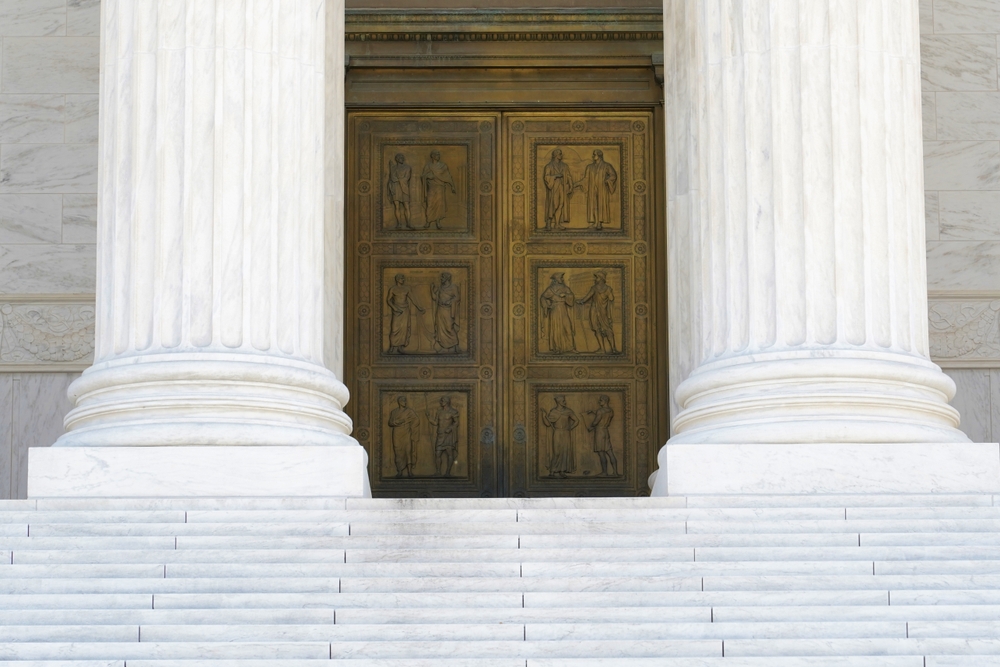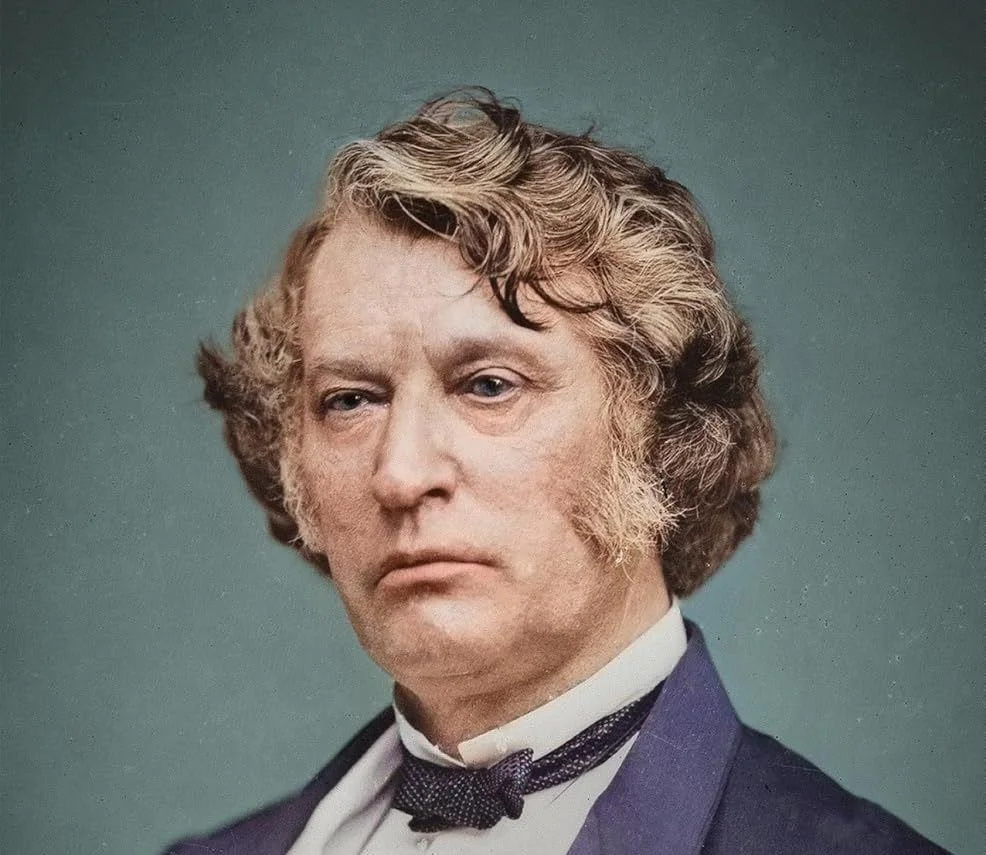
The Telos of Free Speech and the University
We must recommit to the truth-seeking purpose of the university and rediscover the moral case for academic freedom that flows from that purpose.
Editor's Note: Justin Dyer responds to Hadley Arkes' lead essay "Free Speech and the American University: A Proposal."
Late one winter night in 2010, two students walked past the University of Missouri’s Gaines/Oldham Black Culture Center and spread cotton balls across the lawn. Soon after, I found out that one of those students would not be returning to my large Introduction to American Government class. The university suspended both students while police investigated. Prosecutors initially filed felony charges of tampering with an enhanced penalty under Missouri’s hate crimes law. Eventually, the students pleaded guilty to a lesser misdemeanor of littering.
Yet everyone knew that littering was not the real offense. Had they tossed out a Taco Bell bag, the students would not have been punished – at least not like this. Their true offense was bigotry and cruelty, the targeting of people for their race, and the callous indifference to the pain they would cause. Our First Amendment jurisprudence, however, makes such content-based distinctions constitutionally suspect. In a majority opinion for the Supreme Court in R.A.V. v. City of St. Paul (1992), Justice Antonin Scalia had written that the state could not ban graffiti, symbols, and objects (such as burning crosses) which one “knows or has reasonable grounds to know arouses anger, alarm, or resentment in others on the basis of race, color, creed, religion, or gender.” There is no right to burn a cross in someone’s yard or paint a Swastika on their door, of course. One can still be punished for tampering, arson, trespassing, or vandalism, but Scalia insisted that the state cannot create a subclassification of criminal conduct that is proscribed solely on account of the viewpoint the conduct expresses. As he wrote, in his own memorable way, the city of “St. Paul has no authority to license one side of a debate to fight freestyle, while requiring the other to follow Marquis of Queensberry rules.”
When the Harvard president testified in Congress that whether an on-campus call for the genocide of Jews was protected speech depends on the “context,” she probably accurately reflected her lawyers’ advice. In cases involving offensive mid-century marches and rallies of Nazis and Klan members, the Supreme Court held that the First Amendment protects even the most hateful speech as long as it does not incite imminent lawless action. Is a student holding a sign that says “Globalize the Intifada” inciting others to violence? Even if we assume that the hoped-for global intifada includes acts like murder, rape, and torture of innocents—as happened on October 7, 2023—the legal question, based on the Supreme Court’s free-speech precedents from the twentieth century, would depend on the context—how imminent is the intifada?
This regime of content neutrality is rarely truly implemented in a neutral manner, however. As Hadley Arkes notes in his essay, no one believes that speech targeting other minority groups on campus would have been tolerated in the same way. Selective enforcement and outrage reveal the lip service paid to content neutrality. A recent complaint against Harvard filed by Students Against Antisemitism claimed “a double standard invidious to Jews” regarding the enforcement of Harvard’s harassment and free speech policies. After failing in its motion to dismiss the case, Harvard settled and committed to treating complaints of harassment against Jewish and Israeli students “in the same manner and with the same urgency as all protected groups.”
Even as our campuses function with the appearance of a legal system that treats all content equally, administrators are inevitably compelled to make moral judgments about speech. These judgments are evident throughout our student handbooks, orientation sessions, syllabi, and honor codes, and they are also reflected in how we enforce laws against activities like littering. What is the alternative to our current mix of moralism and relativism? An earlier legal framework, outlined by Justice Frank Murphy in Chaplinsky v. New Hampshire (1942), argued that some forms of expression — fighting words, obscenity, and libel — should never receive First Amendment protection. Murphy’s analysis starts with the idea that the purpose of speech is to communicate the truth, and this goal of speech sets its boundaries. Of those words “by which their very utterance inflict injury or tend to incite an immediate breach of the peace,” Murphy states they “are no essential part of any exposition of ideas, and are of such slight social value as a step to truth that any benefit that may be derived from them is clearly outweighed by the social interest in order and morality.”
Chaplinsky aligns with strong protections for academic freedom and free speech. The case for freedom on campus reflects the case for freedom in society. As long as humans are fallible, they will reach different conclusions when reasoning freely. This inevitable clash of opinions and viewpoints must be managed rather than suppressed. At the university, this entails fostering a culture of open, honest, and serious debate, as well as establishing conditions that support such a culture. However, some elements of campus protest culture—such as marches, bullhorns, and encampments—contribute little to the exchange of ideas. Universities may ban obscenity, harassment, and threats, and can also limit other disruptions through neutral time, place, and manner restrictions.
Prudence is a moral virtue, and it is worthwhile to consider what is beneficial in our free speech jurisprudence. What Scalia appeared to believe is that a regime of content neutrality acts as a safeguard against censorship and coercion, protecting us from “omnipotent moral busybodies,” to borrow a phrase from C.S. Lewis. When one faction can silence another by law, it will. Scalia argued that it is better for the law to be neutral about speech content than for the government to impose the Marquis of Queensberry rules on only one side of a debate.
The application of law often depends on judgments that are not neutral in content. The examples are too numerous to mention, but consider Shaare Tefila Congregation v. Cobb (1986), a case involving vandals who spray-painted antisemitic slogans, phrases, and symbols on the walls of a Maryland synagogue. The congregation filed suit against the perpetrators under §1982 of the Civil Rights Act. As Arkes has noted elsewhere, there would have been no lawsuit under the Civil Rights Act if the vandals had spray-painted the words of the Declaration of Independence on the synagogue’s walls. Ultimately, the case depended on the content of the speech.
In the first line of his House Divided Speech, Abraham Lincoln told the delegates to his party’s state convention that if “we could first know where we are, and whither we are tending, we could then better judge what to do, and how to do it.” Given where we are, and whither we are tending, what should we do about the governance of speech on our campuses? In the short term, states may rewrite statutes to protect the free-speech rights of students and professors while also preventing people unaffiliated with the university from sowing chaos and intentionally disrupting campus operations, as the state of Texas recently did. In the long term, however, we must recommit to the truth-seeking purpose of the university and rediscover the moral case for academic freedom that flows from that purpose.
Justin Dyer is the inaugural dean of UT Austin’s School of Civic Leadership. He also holds faculty appointments in the Department of Government and the Department of Business, Government, and Society.
Constitutionalism

Amicus Brief: Hon. William P. Barr and Hon. Michael B. Mukasey in Support of Petitioners
Former AGs Barr and Mukasey Cite Civitas in a SCOTUS Brief

Rational Judicial Review: Constitutions as Power-sharing Agreements, Secession, and the Problem of Dred Scott
Judicial review and originalism serve as valuable commitment mechanisms to enforce future compliance with a political bargain.

Supreme Court showdown exposes shaky case against birthright citizenship
Supreme Court will hear challenges to Trump's order ending birthright citizenship, testing the 14th Amendment's guarantee for babies born in America.

Slavery and the Republic
As America begins to celebrate its semiquincentennial, much ink has been spilled questioning whether that event is worth commemorating at all. Joseph Ellis’s The Great Contradiction could not be timelier.

Two Hails For The Chief’s NDA
Instead of trying to futilely plug the dam to stop leaks, the Court should release a safety valve.


.avif)










.avif)



